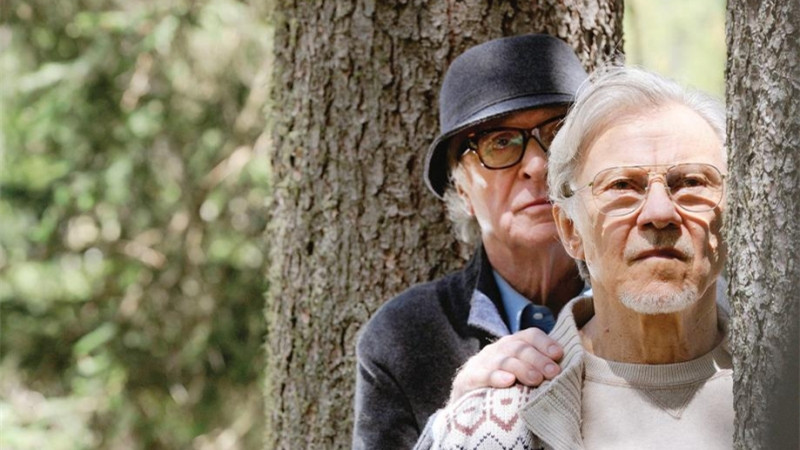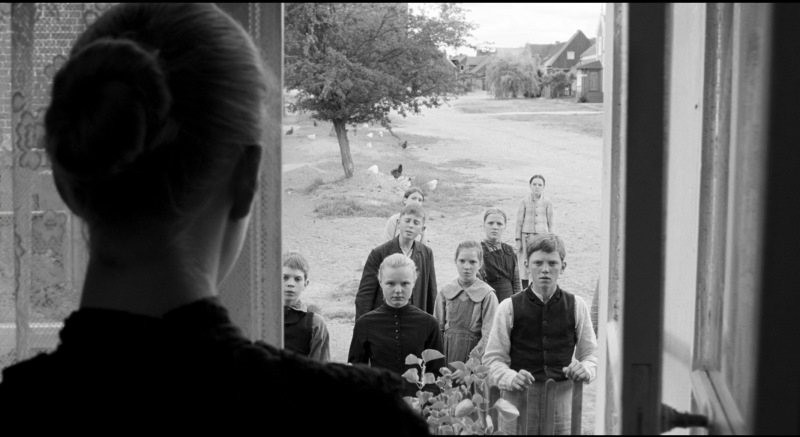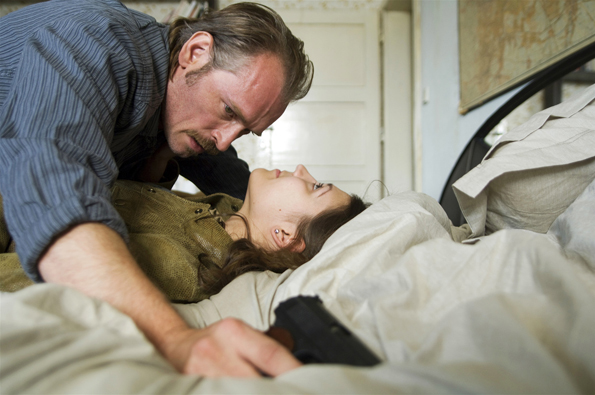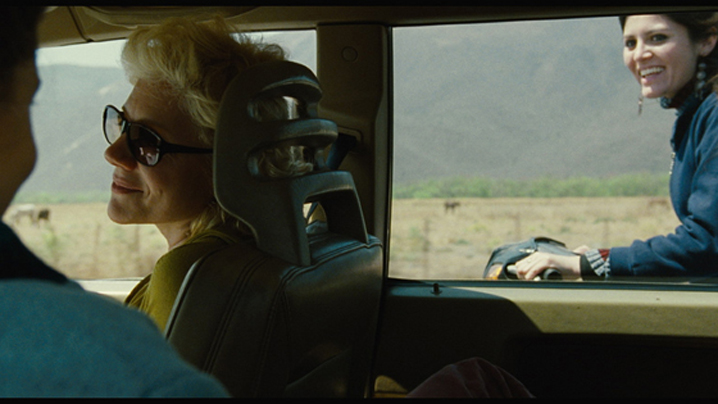
Some of the most fascinating films and stories force us to ponder over what happened. Instead of the movie asking a question, these films make us ask questions because the answer is so elusive. It can be easy to conflate films with a question and films with answers as the same thing, but it is important to remember the films in this article answer their questions instead of leaving things to chance. In other words, they make their conclusions hard to swallow.
For example the 2003 thriller “Oldboy” takes the viewer on a rollercoaster ride until the climax and all is revealed, leaving Dae-su with an ultimatum and a dark secret. By suppressing that secret, “Oldboy” is telling us that some truths are better kept bottled up, hence why he was punished for spreading rumors.
But without further ado, here are 10 great films from this century that do not give easy answers. Article contains spoilers.
1. The White Ribbon (dir. Michael Haneke)

Austrian director, Michael Haneke, has a habit of keeping the viewer’s understanding of the film suspended until the conclusion. But even then the answers presented are completely enigmatic, case in point with “The White Ribbon.”
It is about a small, dysfunctional German village prior to WW1 whose inhabitants are being targeted by an unknown threat. The patriarchs of the village are the primary targets, as the doctor, baron and pastor all have connections with the quasi-terrorism. The village’s schoolteacher believes the pastor’s children and students may have something to do with the incidents but alas no concrete answers are given. “The White Ribbon” has a glacial atmosphere throughout its runtime. This tone feels like a lead weight representing the feelings of anxiety the villagers are feeling.
Though the end gives no specific details onto who did it, the why may be easier to decipher. See, the doctor, baron and pastor are abusive, to punish their actions people in the community lash out. Destroying cabbages, hurting the doctor’s horse, killing the baron’s bird, kidnapping children and possibly killing some people as well.
2. Blind (dir. Eskil Vogt)

A woman, Ingrid, has recently lost her sight, this trauma has made her become somewhat catatonic as she retreats to her fantasies where she is able to see the world like she used to before her ailment. She conjures up dreams of people real or fantasy doing lewd or antisocial-like behaviors.
One character is addicted to porn but this man’s perversions later develop into voyeurism as he watches a single mother across the street. The second character of Ingrid’s fantasies is the mother, the reclusive man feigns for her attention and he talks to her at a grocery store, however that event was only in his head.
Like with all fantasies, they are a projection of our greatest desires, for Ingrid her ultimate desire is sight which is why her fantasy is about a man who rarely talks. These dreams begin to blur the line between reality and fiction; this is the meat of “Blind” — the perpetual war between ourselves and objective reality.
However if the world can only be truly experienced through our personal perception of it, then is fantasy just as palpable as reality? For the most part “Blind” says yes, even though we like to think that reality is the dominant force in our lives, day dreaming is the only time when anyone has 100% control.
3. Revanche (dir. Götz Spielmann)

“Revanche” is a simple thriller where unintended consequences leave huge impacts on the lives of the people involved. Those people are a cop, a prostitute, a bank robber and the cop’s wife.
The bank robber, Alex, develops a relationship with the prostitute but her pimp is possessive of her. So they plan to leave for Vienna when Alex can afford to move. His plan is to rob a bank and hide out at a friend’s house in the townside, however a cop is on patrol in the area and responds to the bank’s distress call. As Alex and his girlfriend are escaping the police man misses the car’s wheel and fatally hits Alex’s girlfriend.
Alex realizes his girlfriend is dead and abandons her and the car in the woods where he goes to the safe house. Unbeknownst to him is the cop and his wife live near by. The cop’s wife visits Alex’s friend making him feel uncomfortable in fear of being recognized. By the end of the film the cop’s wife sees the picture of Alex’s girlfriend on the table, a picture she was shown earlier by her distraught husband, and connects the dots.
One could argue that “Revanche” is a parable on unintended consequences: the consequences of being a prostitute, or a criminal, or a cop, etc. All of these people had no idea that their lives would take a dramatic 180 degree turn in one day, accumulating in resentment and guilt. What commentary the film says on life is that nothing ever goes the way you intend it to.
4. Leviathan (dir. Andrey Zvyagintsev)

It does not get any easier to witness the fall of Kolya on repeat viewings. His property is being seized by the local government and they are offering what Kolya believes to be an undervalued sum for compensation. So Kolya hires an old lawyer friend from Moscow to act as his counselor with his son and wife supporting the legal battle.
However, Kolya’s wife begins an affair with the lawyer and their actions only create more problems once they are caught. Kolya’s wife, feeling guilty, kills herself by jumping off a cliff into the sea near her home, as a result Kolya is charged with murder. Again, it is bewildering to see a man have such bad luck as all he wanted to do was keep his land.
If anything, “Leviathan” shows that winning is not in the ones who desire, but the people who have the most luck. Kolya’s situation only gets worse and worse as he realizes he is losing not only his home, but his wife, as well.
5. The Headless Woman (dir. Lucrecia Martel)

The film’s title is itself a perfect way to describe this psychological drama. Vero is driving down a road seeing a few kids and a dog playing in the area, after she drives past them she feels a bump under her car. She goes into shock and does not stop to investigate what she hit. Dissociating from the moment she goes to see a radiologist and spends the night at a hotel. Vero tells her husband a few days later and he tells her she probably just hit a dog, though this does not heal her mind entirely.
Gradually, over time, Vero begins to lose her mental faculties becoming the eponymous headless woman. Even when she finally goes to investigate there is a sense that Vero will never be completely satisfied. When she goes back to the radiologist and hotel after hearing about a dead body being found in the area, they say they have no records of her ever being there. Is the film implying that Vero made everything up and it was all in her head? Possibly, but the most reasonable explanation may be she just hit a boulder or dog.
“The Headless Woman” is a film that raises more questions than gives answers, and whatever answers the film does provide only makes it seem as if Vero is suffering from some sort of midlife, nervous breakdown.